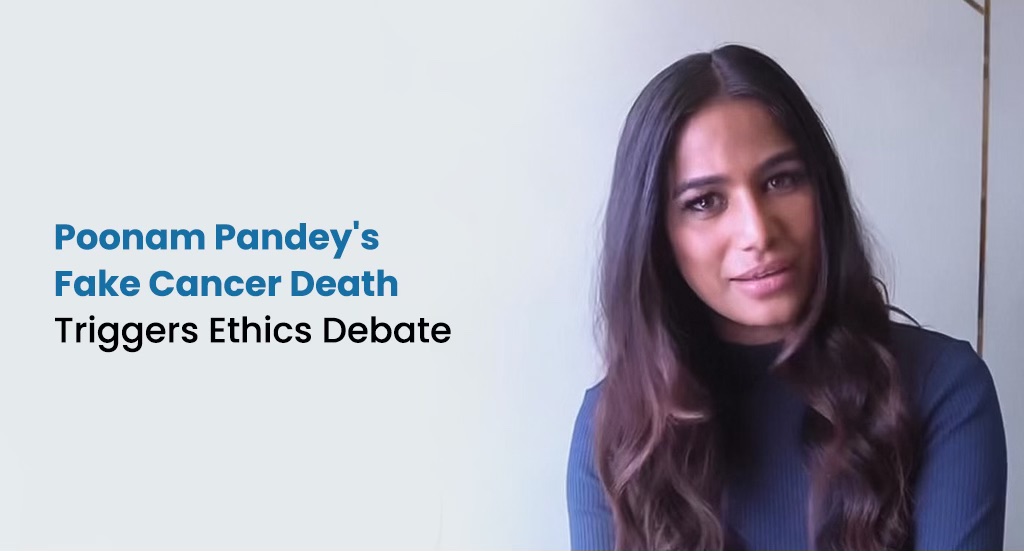On Friday, February 2, actress Poonam Pandey’s Instagram page announced her passing away due to cervical cancer. Just hours after she claimed death, Poonam Pandey published a video, revealing that her death had been staged and emphasising that the sombre Instagram post to her 1.3 million followers was part of a larger social media push to raise awareness about cervical cancer.
It was further revealed that Hauterrfly, a women’s media organisation, organised the incident as part of a campaign to raise awareness about the necessity of HPV immunisations for cervical cancer prevention. The stunt has sparked a debate over the ethical aspects of online publicity campaigns. People are divided over the move, with some praising the social media campaign for trying to draw attention to cervical cancer – the second most-common cancer among women in India – and others criticising the method adopted to draw attention to the matter.
The social media agency that arranged Poonam Pandey’s staged death has offered a public apology. The statement read, “Yes, we were involved in the initiative for Poonam Pandey to spread awareness about Cervical Cancer in collaboration with Hauterrfly. To start, we would like to extend a heartfelt apology – especially towards those who have been triggered as a result of having faced/having a loved one face the hardships of any kind of cancer.”
The statement continued how Poonam Pandey’s mother battled cancer. “Many of you may be unaware but Poonam’s mother has bravely battled Cancer. Having been through the challenges of battling a disease like this at such personal quarters, she understands the importance of prevention and the criticality of awareness, especially when a vaccine is available.”
Shortly after Poonam announced that she had not died, Satyajeet Tambe, a member of the Maharashtra Legislative Council, urged the Mumbai police to take strong action against her.
In no time, Twitter and Instagram were flooded with posts and comments criticising Poonam Pandey. One user commented, “As predicted! It was all just a publicity stunt! Those who had doubts about her were proven right!” Another tweet stated, “Poonam Pandey is the ultimate fraud, she’s alive. This is disgraceful.”
India, which accounts for around 16% of the world’s female population, suffers a disproportionate burden of cervical cancer cases and fatalities, accounting for roughly 25% of global incidence and nearly a third of global deaths from the disease.
Officials have stated that Indian women have a lifetime cumulative risk of 1.6% for having cervical cancer and a 1% cumulative chance of dying from the disease.
According to recent estimates, almost 80,000 women in India are diagnosed with cervical cancer each year, and approximately 35,000 die as a result of the condition.
This incident prompted reflection on the ethical implications of using such a dramatic technique, particularly for those who had personally experienced the emotional toll of cancer in their communities or close ones. The campaign’s conception was revealed by Poonam Pandey in which she stated that her purpose was not to create distress but rather to raise awareness.
A thing to retrospect: In today’s digital landscape, influencers compete on social media to capture viewers and gain widespread notice. In this era, a recent incident involving Poonam Pandey has sparked heated debate over the ethical boundaries of celebrity culture. Pandey unwittingly catapulted herself into the spotlight by inventing her death announcement on a popular network such as Instagram, provoking reflections on the lengths people may go to promote sensationalist awareness online. In what direction we are moving as a human race?








